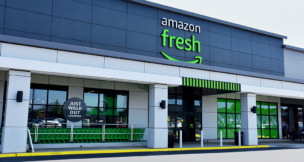Health Care 2025: LUTES, MICHAEL
Lutes joined Bon Secours in 2022 as Richmond market president. The health system created his state president role this year; he now oversees the Richmond and Hampton Roads markets, including about 14,000 employees across the state. In May, the health system opened its approximately $80 million, 100,000-square-foot Harbour View Medical Center in Suffolk. The same […]
Health Care 2025: DAVIS-HAGENS, PAT
Davis-Hagens has had a busy 2025 as Bon Secours expands its Hampton Roads facilities. The health system opened its Harbour View Medical Center, an approximately $80 million, 100,000-square-foot hospital in Suffolk, in May. That month, Bon Secours also opened a primary care clinic in Portsmouth, and in June, its women’s imaging center in Portsmouth opened. […]
Health Care 2025: ARNER, STEVE
Arner succeeded Nancy Howell Agee as CEO in October 2024, after being promoted to president in 2023. He leads Carilion’s 13,000-plus workers, who serve about 1 million patients in Virginia and West Virginia at seven hospitals and 250 medical offices. Arner, who joined Carilion in 1996 as a financial analyst, previously served as chief operating […]
Health Care 2025: ROSNER, DR. MITCHELL
UPDATED SEPT. 12, 2025 A nephrologist who joined the University of Virginia’s medical school as a professor in 2005, Rosner was named CEO of the health system as well as executive vice president for health affairs for the University of Virginia on Sept. 12 after serving as the health system’s interim leader for seven months. […]
Health Care 2025: NEWMAN, DR. CHRISTOPHER
Newman took over as president and CEO of the regional health system in March, after serving as its chief operating officer and chief medical officer since 2019. Mary Washington Healthcare began as an eight-room hospital in Fredericksburg in 1899 and now encompasses two hospitals, four emergency departments and more than 80 health care facilities. Before […]
Health Care 2025: LUNN, DR. WILLIAM
In 2023, Lunn was promoted to president of Nashville, Tennessee-based HCA’s Capital Division, which includes 19 hospitals across three states, including Virginia. In October 2024, LewisGale Hospital Montgomery in Christiansburg opened a $14 million, 10,000-square-foot freestanding emergency room. In December, the Reston Hospital Center opened an inpatient cancer care unit with eight rooms as[...]
Health Care 2025: THOMAS, RONY
Under Thomas’ leadership since 2004, LifeNet Health has continued to grow since its 1982 founding as the Eastern Virginia Tissue Bank. Today, the nonprofit that provides organ, tissue and cell transplants has approximately 1,500 employees globally. In 2024, the organization worked with a record 299 people donating 857 organs for transplant, a 25% increase from […]
Health Care 2025: PULCZINSKI, DALE
Pulczinski is corporate vice president of Novo Nordisk’s manufacturing facility in Petersburg. The Danish pharmaceutical company bought the former AMPAC Fine Chemicals facility from Seoul-based manufacturing conglomerate SK Group at the end of 2024. The maker of Wegovy and Ozempic has more than 10,000 employees in the U.S. across 11 manufacturing, research and development and […]
Health Care 2025: CONNAUGHTON, SEAN T.
Since 2014, Connaughton has led this trade association that represents 26 health systems. The VHHA advocates for health care policies that support the sustainability of Virginia’s health care system, reduce health care costs and improve the health of Virginians. The organization also tracked COVID-related hospitalizations at the height of the pandemic. Previously a commissioned officer [&hel[...]
Health Care 2025: EDWARDS, DR. ERIC
Frustrated that the U.S. had so many medications on the Food and Drug Administration’s drug-shortage list, Edwards partnered in 2020 with Frank Gupton, a Virginia Commonwealth University professor, to launch Phlow, which develops and domestically manufactures active pharmaceutical ingredients (APIs) and finished pharmaceutical products. That year, the U.S. Department of Health and Human Serv[...]
Health Care 2025: JONES, DR. J. STEPHEN
Jones has led Inova Health since 2018. The Northern Virginia health system employs approximately 25,000 people across its five hospitals and numerous other facilities, including the region’s only Level 1 trauma center and Level 4 Neonatal Intensive Care Unit. Jones previously led Cleveland Clinic Regional Hospitals and Family Health Centers. The editor of an American […]
Health Care 2025: SAMPSON, AMY
Since 2023, Sampson has led Children’s Hospital of The King’s Daughters, where she oversees 4,000 employees. She has worked for the pediatric health system for about 35 years. Established in 1961, CHKD offers neonatal and pediatric intensive care, cancer care, acute inpatient rehabilitation, and medical and surgical care, as well as transitional care. Additionally, the […]























